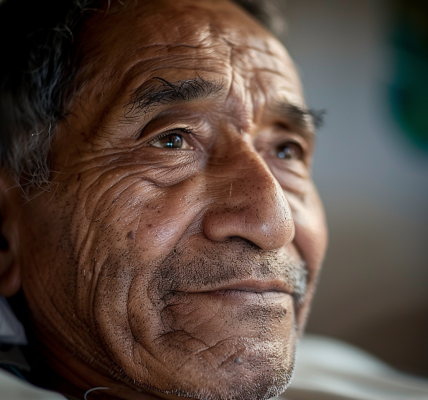For years, scientists and researchers across the globe have united in their mission to address critical health challenges, illustrating the power of international collaboration in biomedicine. The COVID-19 pandemic served as a pivotal moment, showcasing how countries can come together to develop and distribute vaccines in record time. Experts from various fields joined forces, prioritizing a singular goal while temporarily sidelining other research initiatives.
However, the importance of collaborative research extends far beyond urgent health crises. Even during periods of relative stability, numerous persistent health issues continue to affect communities worldwide, particularly those that are underserved. Cervical cancer stands out as a significant health concern, especially in regions with limited healthcare infrastructure. Despite being largely preventable through vaccination and treatable when detected early, cervical cancer remains the third leading cause of cancer-related deaths among women in the Indo-Pacific region.
Statistics reveal a troubling reality: fewer than one in ten women in this area have completed the human papillomavirus (HPV) vaccination series, and less than 10 percent have undergone recent screenings. This alarming gap highlights the urgent need for effective interventions to combat cervical cancer and improve women’s health outcomes.
In response to this pressing health issue, a groundbreaking initiative has emerged. Australia, India, Japan, and the United States have joined forces to tackle cervical cancer in the Indo-Pacific region through the Quad Cancer Initiative. This collaborative effort aims to significantly reduce the cancer burden in the area by promoting HPV vaccination, increasing access to screenings, and enhancing treatment options for underserved communities.
The Quad Cancer Initiative is a testament to the power of international partnerships in addressing health disparities. By combining resources and expertise, these nations aspire to create a comprehensive strategy that not only targets cervical cancer but also lays the groundwork for tackling other forms of cancer in the region. The initiative seeks to bridge healthcare gaps and ensure that women in underserved areas receive the necessary support and resources to protect their health.
The Gardasil vaccine exemplifies the potential of collaborative innovation in cancer prevention. Developed through groundbreaking research, Gardasil has become a benchmark in the fight against cervical cancer. Its effectiveness in preventing HPV-related diseases underscores the importance of vaccination as a critical tool in public health.
As part of the Quad Cancer Initiative, efforts will be made to increase awareness of the Gardasil vaccine and its benefits. Educational campaigns will aim to inform communities about the importance of HPV vaccination and the role it plays in preventing cervical cancer. By fostering a better understanding of the vaccine, the initiative hopes to encourage more women to complete the vaccination series and seek regular screenings.
In addition to vaccination efforts, the Quad Cancer Initiative will focus on expanding access to screenings in underserved communities. Early detection is crucial in improving cervical cancer outcomes, and increasing the availability of screenings can help identify cases at an earlier stage when treatment is more effective. Through mobile clinics and community outreach programs, the initiative aims to reach women in remote areas who may otherwise have limited access to healthcare services.
Moreover, enhancing treatment options is a key component of the initiative. By collaborating on research and sharing best practices, the Quad countries can work together to ensure that women diagnosed with cervical cancer have access to the latest treatment modalities. This collaborative approach can lead to improved survival rates and better quality of life for those affected by the disease.
The Quad Cancer Initiative is not only a response to the urgent need for action against cervical cancer but also a model for future collaborations in global health. By pooling resources and expertise, countries can develop innovative solutions to complex health challenges. This initiative highlights the importance of solidarity and shared responsibility in addressing health disparities that disproportionately affect vulnerable populations.
As the Quad nations embark on this ambitious journey, the commitment to reducing the burden of cervical cancer in the Indo-Pacific region is clear. Through collective action, enhanced awareness, and improved access to healthcare services, the Quad Cancer Initiative aims to make a meaningful impact on women’s health and ultimately contribute to a healthier future for all.
In conclusion, the Quad Cancer Initiative represents a significant step forward in the global fight against cervical cancer. By fostering international partnerships and focusing on prevention, early detection, and treatment, this collaborative effort has the potential to save lives and improve health outcomes for women across the Indo-Pacific region.





